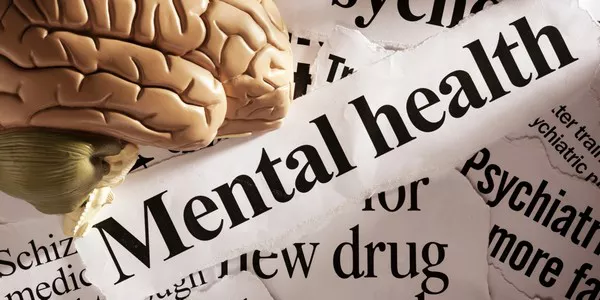Dissociative disorders are a group of mental health conditions that affect a person’s sense of identity, memory, and consciousness. These disorders are often characterized by a disconnection between different aspects of an individual’s identity, memory, or consciousness. In this comprehensive article, we will explore various types of dissociative disorders, provide examples, delve into their symptoms, and discuss treatment options for those who may be struggling with these conditions.
1. Types of Dissociative Disorders
Dissociative Identity Disorder (DID)
Dissociative Identity Disorder, formerly known as Multiple Personality Disorder, is perhaps the most well-known dissociative disorder. Individuals with DID experience two or more distinct identities or personality states, often referred to as “alters,” that take control of their consciousness and behavior at different times.
Depersonalization-Derealization Disorder
Depersonalization-Derealization Disorder is characterized by persistent feelings of being detached from one’s body (depersonalization) or feeling that the world is unreal or distant (derealization). Individuals with this disorder may feel like they are observing themselves from outside their own bodies.
Dissociative Amnesia
Dissociative Amnesia involves memory loss that goes beyond normal forgetfulness. It typically relates to a specific traumatic event or period in a person’s life. The individual may have difficulty recalling important personal information or events.
2. Examples of Dissociative Disorders
Dissociative Identity Disorder (DID) Example
An example of DID involves an individual who has multiple distinct identities or “alters.” One alter may be a childlike personality, while another may be more assertive or even aggressive. These alters can emerge at different times and may have their own memories and characteristics.
Depersonalization-Derealization Disorder Example
Imagine feeling as though you are floating outside your body, watching yourself from a distance, or perceiving the world around you as if it were a dream. These are examples of the experiences that individuals with Depersonalization-Derealization Disorder may have.
Dissociative Amnesia Example
A person with Dissociative Amnesia may experience memory gaps related to a traumatic event, such as a car accident. They might remember events before and after the accident but have no recollection of the accident itself due to the psychological defense mechanism of dissociation.
3. Common Symptoms of Dissociative Disorders
Memory Disturbances
One of the hallmark symptoms of dissociative disorders is memory disturbances. This can include gaps in memory, amnesia surrounding traumatic events, or the sudden emergence of different personalities or identities.
Identity Confusion
Individuals with dissociative disorders may experience confusion about their identity or a sense of being disconnected from themselves. They may not recognize themselves in the mirror or may feel like they are someone else at times.
Emotional Dysregulation
Emotional dysregulation is common among those with dissociative disorders. They may experience intense mood swings, often in response to different personalities or identity states emerging.
4. Treatment Options for Dissociative Disorders
Psychotherapy
Psychotherapy, particularly specialized approaches like Dialectical Behavior Therapy (DBT) and Eye Movement Desensitization and Reprocessing (EMDR), is a cornerstone of treatment for dissociative disorders. Therapists help individuals integrate their different identities, process traumatic memories, and learn coping strategies.
Medication
While there is no specific medication to treat dissociative disorders directly, medication may be prescribed to manage symptoms such as depression, anxiety, or mood swings that often co-occur with these disorders.
Hospitalization
In severe cases where safety is a concern, individuals with dissociative disorders may require hospitalization to ensure their well-being and provide intensive therapy.
Supportive Care
A strong support system is crucial for individuals with dissociative disorders. Support from friends and family, along with participation in support groups, can aid in the recovery process.
Conclusion
Dissociative disorders are complex mental health conditions that can significantly impact a person’s life. It is essential to recognize the symptoms and seek professional help if you or someone you know is struggling with these disorders. With appropriate treatment, including psychotherapy and support, individuals with dissociative disorders can manage their symptoms, improve their quality of life, and work towards healing and integration. Understanding these disorders and the experien

